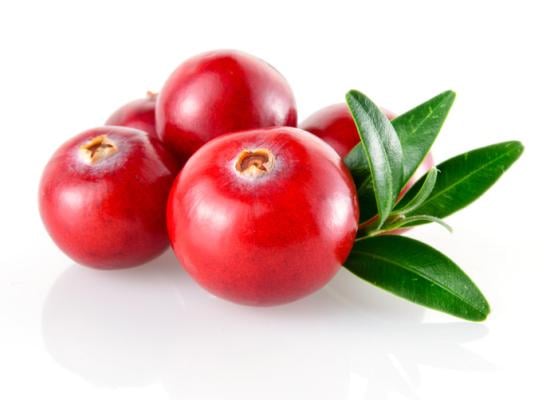
Image credit: Getty Images
March 25, 2022 – A new clinical trial found daily consumption of cranberries for one month improved cardiovascular function in healthy men.
The new study, published in Food & Function, included 45 healthy men who consumed whole cranberry powder equivalent to 100g of fresh cranberries per day (9 g powder) or a placebo for one month. Those consuming cranberry had a significant improvement in flow-mediated dilation (FMD), which signals improvement of heart and blood vessel function. FMD is considered a sensitive biomarker of cardiovascular disease risk and measures how blood vessels widen when blood flow increases.
Dr. Ana Rodriguez-Mateos, Senior Lecturer in Nutrition at the Department of Nutritional Sciences at King’s College London and senior author of the study, said: “The increases in polyphenols and metabolites in the bloodstream and the related improvements in flow-mediated dilation after cranberry consumption emphasise the important role cranberries may play in cardiovascular disease prevention. The fact that these improvements in cardiovascular health were seen with an amount of cranberries that can be reasonably consumed daily makes cranberry an important fruit in the prevention of cardiovascular disease for the general public.”
Low consumption of fruits and vegetables is one of the top modifiable risk factors associated with a higher incidence of cardiovascular disease worldwide. Growing evidence continues to link the polyphenols from berries with heart health benefits. Cranberries are rich in unique proanthocyanidins that have distinct properties compared to polyphenols found in other fruits.
This study explored whole cranberry freeze-dried powder, equivalent to 100g of fresh cranberries, and its impact on cardiovascular health. The results demonstrated that consumption of cranberries as part of a healthy diet can help reduce the risk of cardiovascular disease by improving blood vessel function.
An initial pilot study was completed with five healthy young men to confirm the biological activity of the whole cranberry freeze-dried powder. The pilot concluded that cranberry consumption increased FMD and confirmed dosing. The main study was a gold standard study design examining 45 healthy men each consuming two packets of whole cranberry freeze-dried powder equivalent to 100g of fresh cranberries, or a placebo, daily for one month. The study found significant improvements in FMD two hours after first consumption and after one month of daily consumption showing both immediate and chronic benefit. In addition, metabolites were also identified and predicted the positive effects seen in FMD. These results conclude that cranberries can play an important role in supporting cardiovascular health and good blood vessel function.
Dr. Christian Heiss, Professor of Cardiovascular Medicine at the University of Surrey and co-author of the study said: “Our findings provide solid evidence that cranberries can significantly affect vascular health even in people with low cardiovascular risk. This study further indicates that specific metabolites present in blood after cranberry consumption are related to the beneficial effects.”
To read the study in its entirety, the Food & Function article can be accessed here: Daily consumption of cranberry improves endothelial function in healthy adults: a double blind randomized controlled trial.
The study was supported by The Cranberry Institute, the Research Committee of the Medical Faculty of Heinrich-Heine University Dusseldorf and a Susanne Bunnenberg Heart Foundation grant to Dusseldorf Heart Centre.
For more information: https://www.kcl.ac.uk/
Related polyphenol content:
Eating Chocolate Once a Week May Reduce Risk of Heart Disease
Swedish Study Shows Chocolate May Prevent Stroke
Moderate Chocolate Consumption Linked to Lower Heart Failure Risk
New Study Finds Eating Chocolate Regularly Could Cut Cardiovascular Risk by One Third
Cocoa, Chocolate May Repair Blood Vessels, Increase Blood Flow
Dark Chocolate May Help Lower Risk of Heart Attack
Editor’s Choice for Most Innovative Technology at ACC 2012
Regular Caffeine Consumption Does Not Result in Extra Heartbeats


 February 03, 2026
February 03, 2026 









